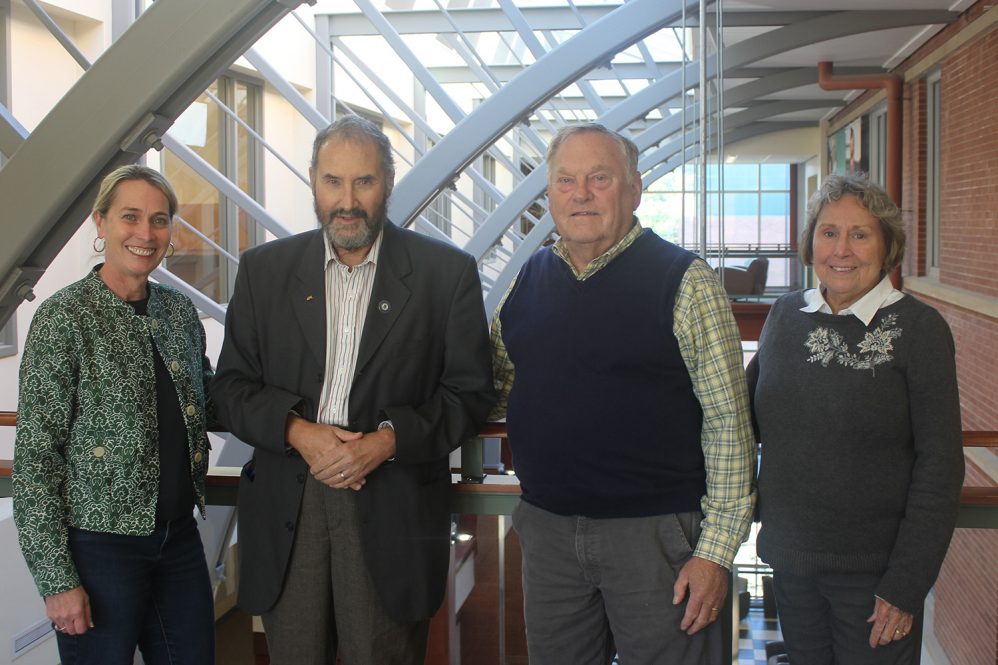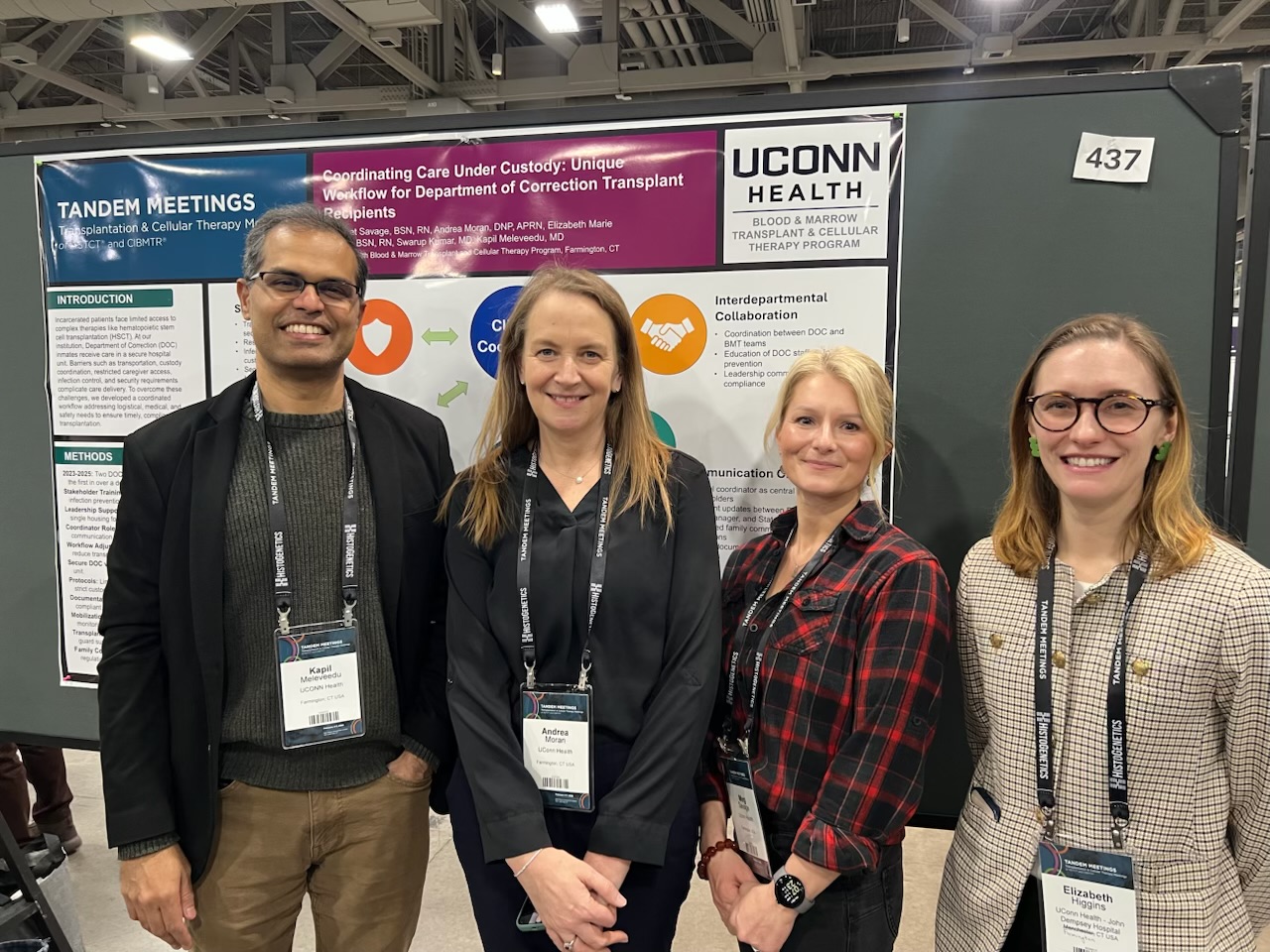Though inactive today, UConn’s Phi Delta Kappa (PDK) chapter found a lasting way to support educators: donating $5,000 each to the Neag School Alumni Board Endowed Scholarship and the Department of Curriculum and Instruction General Support funds. The gift reflects the chapter’s long-standing dedication to fostering excellence in teaching and supporting the development of future educators at UConn.
“We were always the UConn chapter, so we figured we’d give it back to UConn aspiring teachers,” says Patti Hess ’10 6th Year, director of pupil services at Tolland Public Schools and former president of PDK.
“I think the future of PDK is the young teachers who start out, and that’s the group we wanted to reach, especially the ones who are underprivileged,” says Duffy Brookes ’68 (ED), former chapter historian. “We were adamant that it had to go to something that matched PDK’s goals, and those two funds did.”
“Ethically, we weren’t sure what to do with the money,” says Laurie Brookes, former secretary of PDK. “But because we felt that we had earned the money through fundraisers, we felt that it should stay here in Connecticut.”
The decision came after thoughtful discussion among the remaining board members, who wanted the funds to have a direct and lasting impact on future educators. The group considered several options but ultimately agreed that supporting students within the Neag School of Education best reflected the chapter’s original mission, to nurture professional growth and advance the field of education.
The group’s decision reflects a deep sense of responsibility to give back to the institution that shaped their professional lives and to invest in the future of education in Connecticut.
We were always the UConn chapter, so we figured we’d give [the funds] back to UConn aspiring teachers. — Patti Hess ’10 6th Year
The Neag School Alumni Board is deeply invested in supporting current and future students through scholarships, awards, and mentorship. The board’s scholarship fund helps further the education of Neag School students through annual scholarships to high-achieving students with financial need.
The Neag School’s Department of Curriculum and Instruction General Support fund helps offset the financial challenges student teachers face. Unlike many college interns, aspiring educators complete hundreds of unpaid hours in clinical placements while also covering transportation, fingerprinting, and tuition costs. This fund provides critical support for these academic and field experiences, helping future teachers focus on learning rather than on financial strain.
Founded in 1951, UConn’s chapter of PDK International aimed to provide professional support, camaraderie, and educational enrichment for its members. Over the years, the group maintained a membership class of approximately 600 educators.
Early on, PDK took a discerning approach to building its membership, carefully selecting educators who shared its dedication to advancing the profession. Those chosen were encouraged to take active roles in conversations influencing education across Connecticut.
At their 50th anniversary in 2001, former PDK president Virginia J. Grzymkowski ’61 MS, ’64 6th Year, ’81 Ph.D., who passed away in 2009, reflected upon the organization’s members.
“Those who become members of this chapter have been outstanding individuals in public education,” Grzymkowski said. “They believe in the need for an organization that nurtures professional interests and networking among strong educators. They insist upon substantive chapter meetings. They develop professional relationships that often last a lifetime.”
I think the future of PDK is the young teachers who start out, and that’s the group we wanted to reach, especially the ones who are underprivileged. We were adamant that it had to go to something that matched PDK’s goals, and those two funds did. — Duffy Brookes ’68 (ED)
Monthly gatherings gave members the chance to connect, share ideas, and build lasting professional relationships. PDK also supported educators’ growth by providing small scholarships to those pursuing advanced study.
“This chapter of PDK is extraordinary,” Grzymkowski said. “Its membership has caused it to move from a conservative, male-oriented, 1950s approach to educational issues to a progressive and diverse group of individuals who are willing and capable of making significant impacts on public education issues in the 21stcentury.”
However, in 2002, things shifted when PDK International changed its procedures to allow “open membership.” What was once a highly personalized and selective process — grounded in mentorship, nomination, and professional connection — became a more generalized invitation open to all. While this change broadened access and aligned with national trends toward inclusivity, it also altered the tight-knit culture that had long defined UConn’s chapter.
“Twenty years ago, the chapter was very active with teachers, school administrators, and university faculty,” says David L. Stoloff, professor at Eastern Connecticut State University and former treasurer of PDK. “In the 2010s, there was a decline in interest due to the busy life of teachers and educators. The pandemic and its aftermath made it challenging to have meetings and other activities.”
As participation declined, the chapter gradually became less active, though its members remained connected through their shared history and dedication to education. Meetings became less frequent, with their last activity being a teacher spa day a few years ago. Eventually, the chapter ceased formal operations.
“I have hopes that the UConn PDK chapter will be revived,” Stoloff says. “It provides important networking opportunities for the diverse range of educators in the region.”
That belief is echoed by the former board members, who hope the next generation of educators will rebuild the same tight-knit community that once defined PDK.
For information on Phi Delta Kappa International, visit pdkintl.org.



